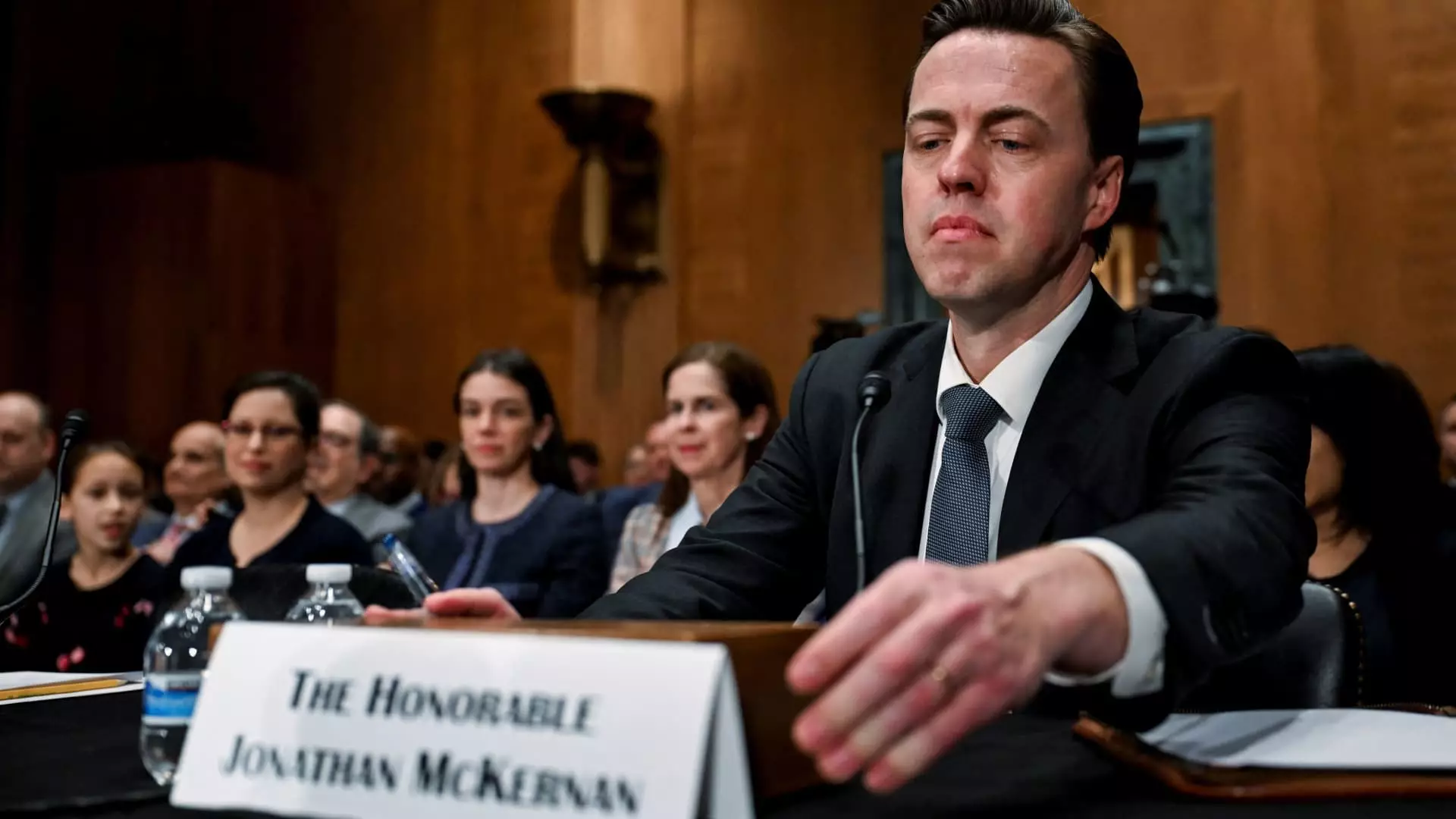The recent confirmation hearing for President Donald Trump’s nominee to lead the Consumer Financial Protection Bureau (CFPB) has sparked intense scrutiny and concern, particularly among Democratic senators. Jonathan McKernan, whose track record includes service on the board of the Federal Deposit Insurance Corporation (FDIC), stood before the Senate to answer questions regarding his commitment to uphold the mission of the CFPB. While McKernan emphasized his dedication to enforcing consumer protection laws, his candid critique of the agency’s past leadership and current status raised troubling questions about the future of consumer financial protection under his potential stewardship.
One of the pivotal moments during the hearing was McKernan’s assertion that he would “fully and faithfully” comply with the legal requirements governing the CFPB. Drawing from his experiences during the 2008 financial crisis, he expressed a strong belief that a robust financial regulatory framework is essential for the welfare of everyday Americans. “Consumer protection is critical to that end,” he stated, attempting to position himself as a dedicated public servant with the best intentions for consumers.
However, his acknowledgment of the CFPB’s past activities under Rohit Chopra’s directorship painted a more complicated picture. McKernan claimed that the agency had become overly politicized and had exceeded its legal bounds, arguing that such a trajectory ultimately harmed consumers by inadvertently increasing prices. This critique suggests a desire to move the CFPB in a different direction—one that may not resonate well with those who view the agency’s protective measures as necessary safeguards against corporate excess.
Since the appointment of acting CFPB Director Russell Vought, the bureau has seen significant upheaval. Reports indicate that the agency has shut down its Washington headquarters and terminated approximately 200 employees, leading to fears regarding its viability. As Vought has been accused of planning even more drastic cuts, including laying off over 95% of the remaining staff, the foundation of the CFPB seems to be in jeopardy. This context creates an environment of uncertainty as McKernan faces questions about his capacity to navigate the agency back to a position of efficacy.
These disruptions are not simply internal; they reverberate through the legal framework the CFPB operates within. The dismissal of several significant enforcement lawsuits, particularly against major financial entities like Capital One, raises alarms about the agency’s commitment to pursuing justice on behalf of consumers. The implications of such actions can be profound, suggesting a retreat from oversight that places consumers at greater risk of exploitation by predatory lenders and other financial institutions.
Democratic senators were particularly pointed in their inquiries, probing McKernan’s willingness to adhere to statutory requirements, like maintaining advocacy offices for veterans and senior citizens, which are essential for consumer outreach and protection. The skepticism expressed by senators such as Elizabeth Warren, who warned that McKernan appeared to be “lined up to be the No. 1 horse at the glue factory,” underscores the political tension surrounding this confirmation. Warren’s remarks hint at a broader concern: whether McKernan can effectively advocate for consumer rights in an organization that seems increasingly content to dismantle its core mission.
Senator Jack Reed further emphasized the precariousness of McKernan’s position, alluding to Vought’s actions that seemingly undermine the agency’s very existence. The dismissal of prosecution cases against unethical lenders raises critical questions about accountability and regulatory enforcement prompted by McKernan’s nomination. Reed’s metaphor of “departing Liverpool on the Titanic” paints a bleak picture of the hurdles McKernan may face in sustaining the CFPB’s relevance.
As McKernan’s nomination passes through the Senate, the overarching narrative is clear: the future of the CFPB hangs in the balance. While he claims an intention to “right-size” and “refocus” the agency, there remains a pervasive sense of doubt regarding his ability to protect consumer interests amidst a wave of significant cuts and bureaucratic shifts. The congressional hearing served not merely as a platform for questions about McKernan’s qualifications but as a harbinger of potential changes that may impede the CFPB’s foundational role as a defender of consumers against systemic financial vulnerabilities. In the current political climate, it remains to be seen whether the agency will emerge empowered or irreparably weakened.

